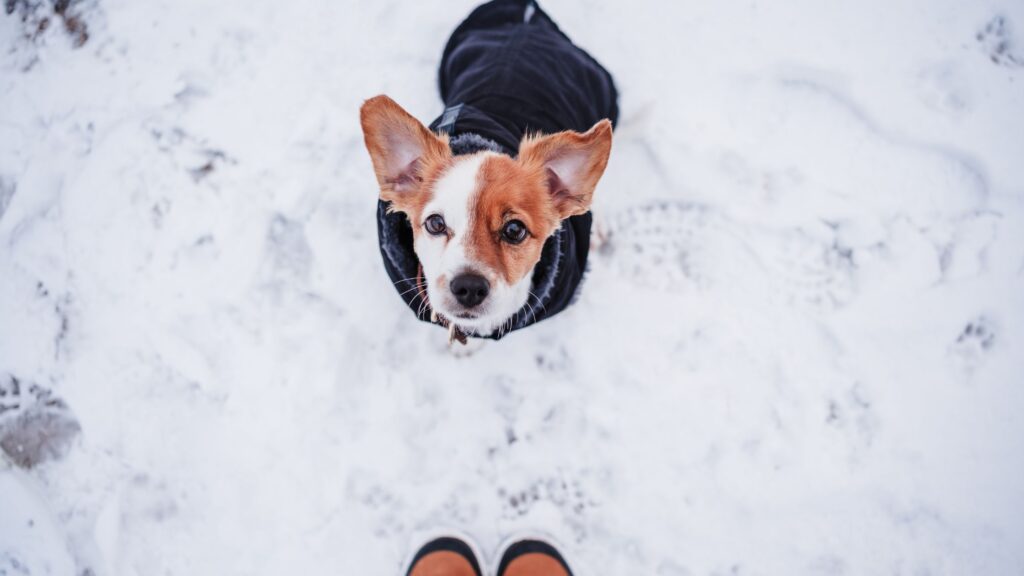
As the winter season approaches, it’s essential for pet parents to be well-prepared to ensure the health and well-being of their furry companions. Cold weather can pose various challenges for pets, from frostbite to dehydration, making it crucial to implement proper winter care practices. In this article, we will explore seven key winter care tips for pets that every pet parent should know to keep their animals safe, comfortable, and happy during the chilly months ahead.
Importance of Winter Care for Pets
Who knew our furry friends needed winter care too? Cold weather can have a serious impact on our pets, from frostbite to dehydration. Let’s dive into why winter care is crucial for keeping our pets happy and healthy during the chilliest season.
Understanding the Impact of Cold Weather on Pets
Imagine walking barefoot in the snow – not fun, right? Pets can feel the same discomfort in freezing temperatures. Understanding how cold weather affects our furry companions helps us better protect them from potential dangers like hypothermia and paw pad injuries.
Benefits of Implementing Winter Care Practices
Winter care isn’t just about preventing frosty paws—it also boosts our pets’ overall well-being. From cozying up in a warm bed to staying nourished and hydrated, implementing winter care practices can keep our pets thriving all season long.

7 essential winter care tips for pets
1. Bundle Up with Pet-Friendly Winter Gear 🧥
Not all pets are built to brave the cold. Short-haired breeds, puppies, senior pets, or small dogs often need extra layers to stay warm. Pet sweaters, coats, and even booties can make a huge difference.
Quick Tip:
Choose well-fitted sweaters or jackets that cover the chest and back while allowing free movement. For dogs who walk in the snow, waterproof booties can protect their paws from frostbite and salt.
2. Protect Those Precious Paws 🐾
Your pet’s paws are especially vulnerable in winter. Ice, snow, and de-icing salts can cause dryness, cracks, and irritation.
How to Help:
- Before walks, apply paw balm to form a barrier of protection.
- After each outing, wipe your pet’s paws with a damp cloth to remove salt or chemicals.
- If your pet doesn’t like booties, trimming fur between paw pads can prevent ice buildup.
Why It Matters: De-icing salts and antifreeze are toxic if licked off paws, so always clean them thoroughly.
3. Keep Your Pet Hydrated 💧
While it’s easy to focus on warmth during winter, hydration is just as important. The cold air can dry out your pet’s skin and coat, and they can still dehydrate in winter.
Quick Fixes:
- Make sure your pet always has access to fresh, unfrozen water.
- For pets kept outdoors, think about utilizing a heated water bowl.
- Add moisture-rich foods like wet food or broth to their diet to keep them hydrated.
4. Maintain a Cozy Indoor Environment 🏠
Just like humans, pets need a warm, draft-free space to retreat to during chilly days. Even though pets have fur, prolonged exposure to cold temperatures can cause discomfort or even hypothermia.
Make It Cozy:
- Provide soft, warm bedding in a quiet corner of your home.
- Keep pets away from cold floors by using blankets or rugs.
- For senior pets or those with arthritis, heated beds can provide comfort and relief.
Pro Tip: If it is too cold for you, it is too cold for your dogs, therefore never let them outside for extended periods of time during really cold weather!
5. Watch Out for Dry, Itchy Skin 🐕
Winter air tends to be dry, leaving pets with flaky skin and a dull coat. Overbathing during winter can strip their natural oils, making it worse.
How to Combat Dry Skin:
- Reduce baths during winter and use a moisturizing, pet-safe shampoo.
- Brush regularly to distribute natural oils and prevent matting.
- Add omega-3 fatty acids to your pet’s diet (fish oil supplements) to improve coat health.
Tip: Use a humidifier to add moisture to the air and keep your pet comfortable.
6. Adjust Your Pet’s Diet 🍲
In order to stay warm throughout the winter, pets may need to expend more calories, particularly if they are active outside. At the same time, indoor pets that move less may require fewer calories to avoid unnecessary weight gain.
Feeding Strategy:
- For active pets, consult your vet about increasing their food intake slightly.
- Opt for nutrient-dense, high-protein food to keep their energy levels up.
- Keep an eye on your pet’s weight and make any necessary dietary adjustments.
7. Be Mindful of Winter Hazards ⚠️
Winter comes with hidden dangers that can harm your pets. Keep an eye out for these common winter hazards:
- Antifreeze: It’s toxic but has a sweet taste that can attract pets. Clean up spills immediately.
- Frozen Water Bowls: Ensure outdoor pets always have access to fresh, liquid water.
- Slippery Surfaces: Ice can cause injuries; walk cautiously and avoid slick areas.
Bonus Tip: If you live in an area with heavy snow, keep your pet in sight during outdoor playtime—snowdrifts can be disorienting!
By following these winter care tips for pets, you can provide them with the necessary support and protection to thrive in the colder months. Remember, your furry friend relies on you for warmth, nourishment, and safety, so being proactive and attentive to their needs during winter is key. With the right preparations and practices in place, you can ensure that your pet stays healthy and happy throughout the season. Stay informed, stay prepared, and enjoy the winter season with your beloved companion by your side.
